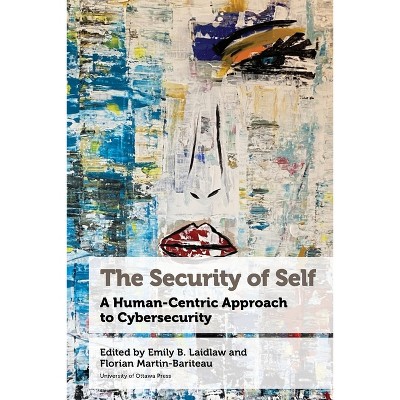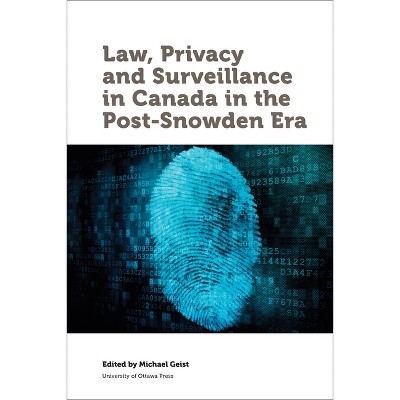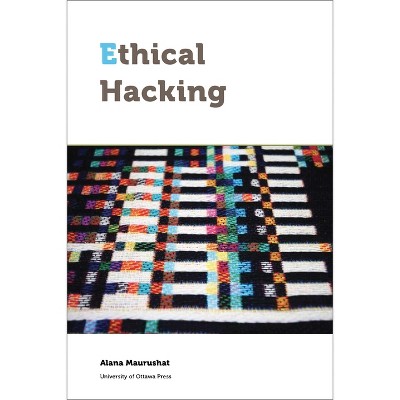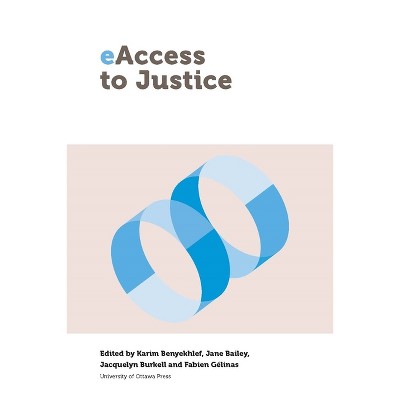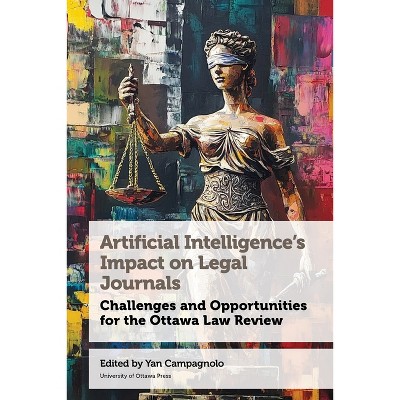Sponsored

Citizenship in a Connected Canada - (Law, Technology, and Media) by Elizabeth DuBois & Florian Martin-Bariteau (Paperback)
In Stock
Sponsored
About this item
Highlights
- What does it mean to be a citizen in Canada in a digital context?
- About the Author: Jane Bailey (Contributor) Jane Bailey is Full Professor in Faculty of Law, Common Law Section, at the University of Ottawa where she teaches Cyberfeminism, Technoprudence and Contracts.
- 316 Pages
- Freedom + Security / Law Enforcement, Government
- Series Name: Law, Technology, and Media
Description
About the Book
What does it mean to be a citizen in Canada in a digital context? What are the implications of this digital setting for citizens and policy making? Scholars, activists, and policy makers examine, in Citizenship in a Connected Canada: A Research and Policy Agenda, what a connected society means for Canada.Book Synopsis
What does it mean to be a citizen in Canada in a digital context? What are the implications of this digital setting for citizens and policy making? Scholars, activists, and policy makers examine, in Citizenship in a Connected Canada: A Research and Policy Agenda, what a connected society means for Canada.
This interdisciplinary edited collection brings together scholars, activists, and policy makers to build consensus around what a connected society means for Canada. The collection offers insight on the state of citizenship in a digital context in Canada and proposes a research and policy agenda for the way forward. Part I examines the current landscape of digital civic participation and highlights some of the missing voices required to ensure an inclusive digital society. Part II explores the relationship between citizens and their political and democratic institutions, from government service delivery to academic and citizen engagement in policy making. Part III addresses key legal frameworks that need to be discussed and redesigned to allow for the building and strengthening of an inclusive society and democratic institutions. This is a foundational resource for policy makers, students, and researchers interested in understanding citizenship in a digital context in Canada.About the Author
Jane Bailey (Contributor)
Jane Bailey is Full Professor in Faculty of Law, Common Law Section, at the University of Ottawa where she teaches Cyberfeminism, Technoprudence and Contracts. She co-leads The eQuality Project, a 7-year SSHRC funded partnership grant focused on young people's experiences in digitally-networked environments and is a working group co-leader on The Autonomy through Cyberjustice Technologies Project, a 4-year SSHRC funded partnership grant focused on use of technology to improve access to justice. Her research focuses on TFV, particularly as perpetrated through algorithmic profiling and other practices of technology corporations and governments. She co-edited The Emerald International Handbook on Technology-facilitated Violence and Abuse, an open access publication.
Jacquelyn Burkell is a Full Professor in the Faculty of Information and Media Studies at the University of Western Ontario. Her research focuses on the social implications of technology, with particular reference to privacy and equality impacts. She is a co-investigator on two SSHRC Partnership grants focused on the implications of technology: the eQuality Project co-lead by Jane Bailey and Valerie Steeves, and the Autonomy Through Cyberjustice Project, where she co-leads a working group with Jane Bailey. Her research focuses on the social implications of technology, with particular attention to issues of privacy and autonomy. Teresa Scassa (Contributor)
Teresa Scassa is the Canada Research Chair in Information Law and Policy and a Full Professor in the Faculty of Law, Common Law Section
at the University of Ottawa, where she is a member of the Centre for Law, Technology and Society. Her research addresses digital and data governance issues. She has written widely in the areas of privacy law, data governance, intellectual property law, law and technology, artificial intelligence, and smart cities. She is Co-Editor of the books AI and the Law in Canada (2021), Law and the Sharing Economy (2017), and The Future of Open Data (2022), and Co-Author of Digital Commerce in Canada (2020) and Canadian Intellectual Property Law (2022). Elizabeth Dubois (Editor)
Elizabeth Dubois is Associate Professor in the Department of Communication and a faculty member of the Centre for Law, Technology and Society at the University of Ottawa. Florian Martin-Bariteau (Editor)
Florian Martin-Bariteau is the University Research Chair in Technology and Society and an Associate Professor in the Faculty of
Law, Common Law Section at the University of Ottawa, where he is the director of the Centre for Law, Technology and Society. He is co-investigator of the Human-centric Cybersecurity Partnership where he leads the "Transparency and Accountability" stream, and also a Faculty Associate of the Berkman-Klein Center for Internet and Society at Harvard University.
Shipping details
Return details
Frequently bought together

Trending Non-Fiction











